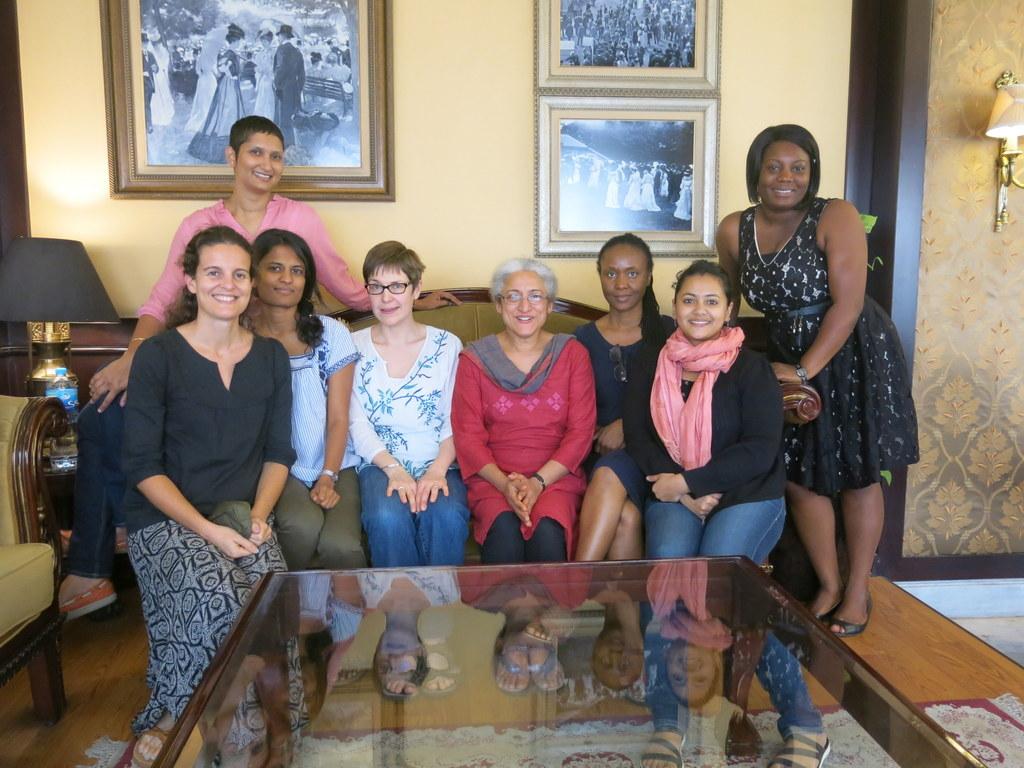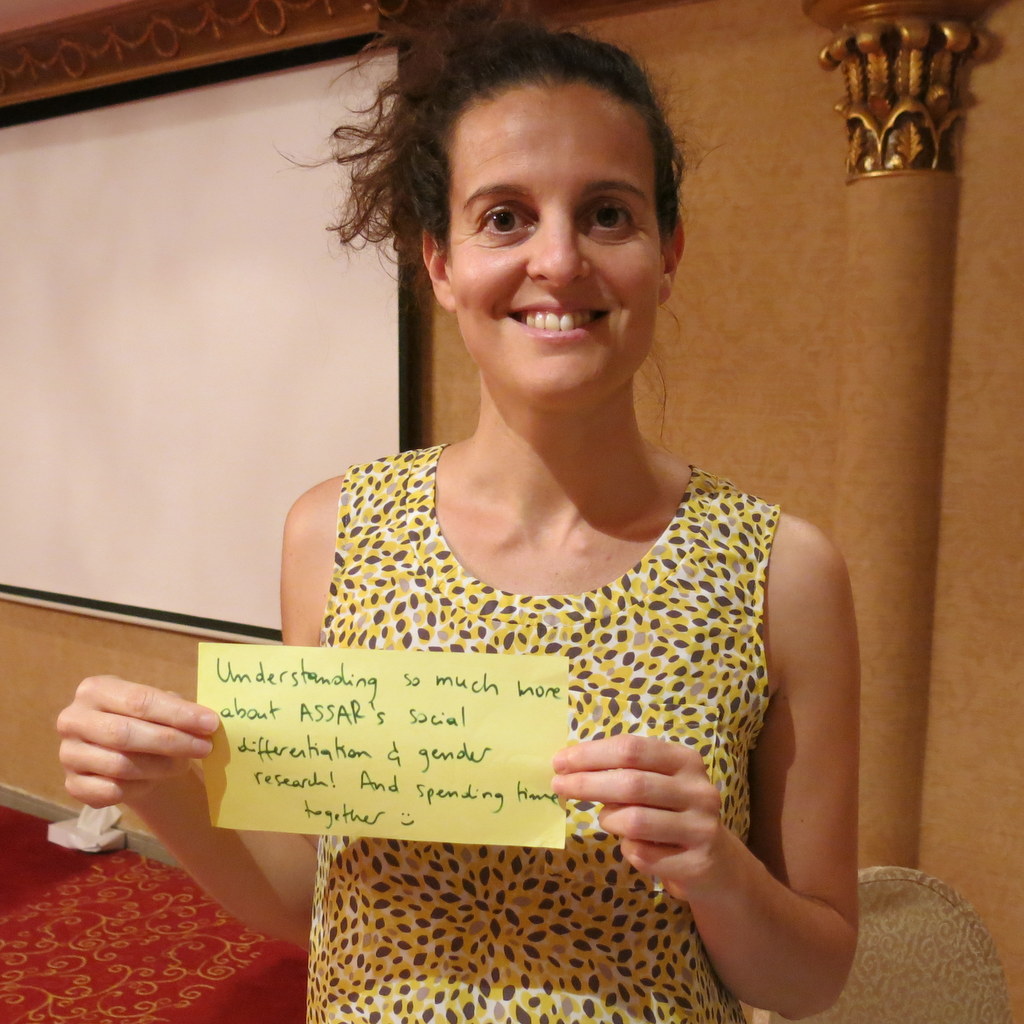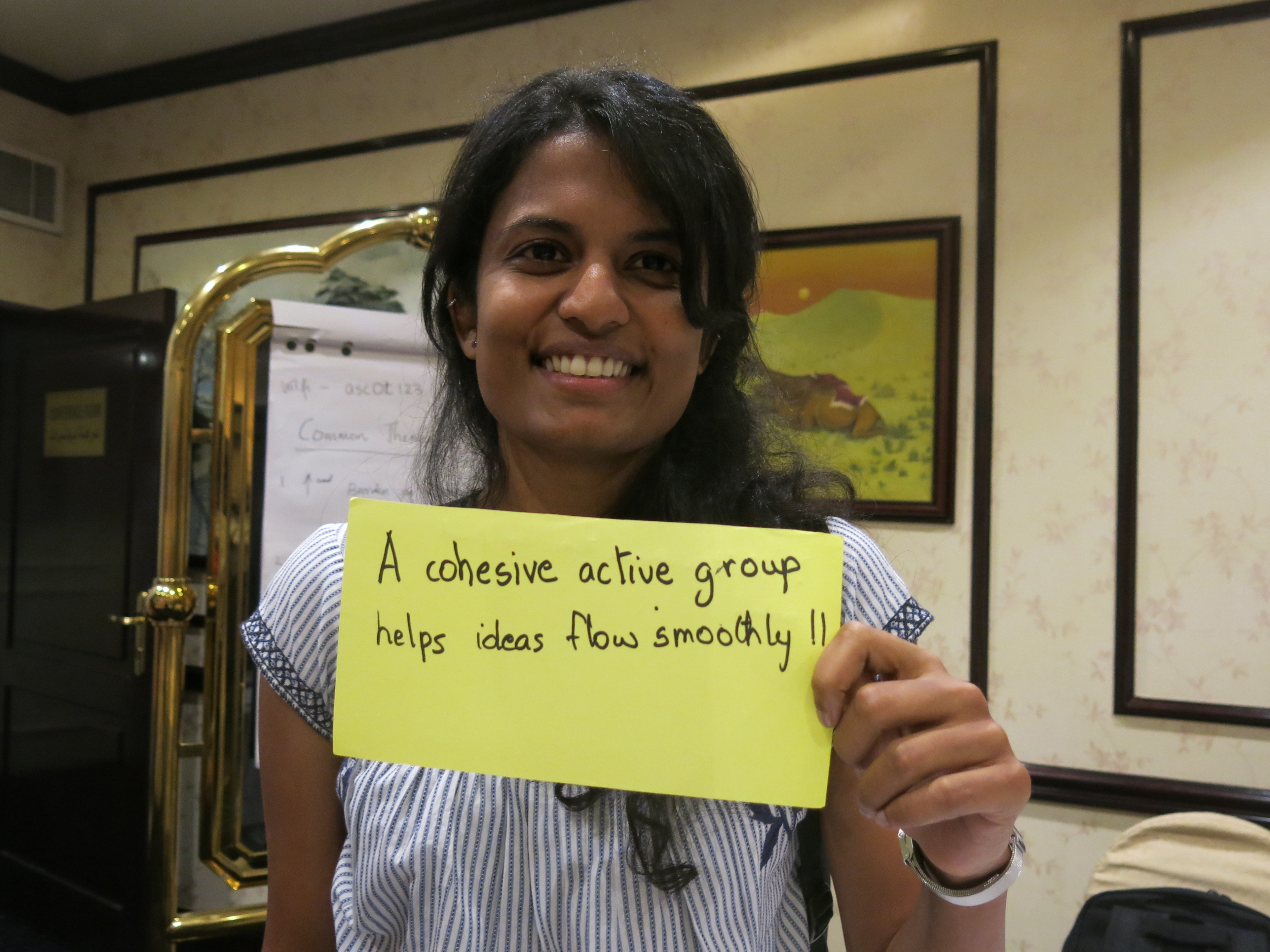What I learned and reflected on after spending a few days with ASSAR’s gender experts

By Lucia Scodanibbio
Words like “collaboration”, “cohesiveness”, “clarity” and “cooperation” resoundingly stood out from the hasty 7pm reflection at the end of ASSAR’s late January 2018 three-day “Gender and changing household dynamics” writeshop. Everyone was rather exhausted, yet satisfied and energised at the progress made both in their own research papers and through the confirmation of the common themes that will be used to populate the synthesis products from this critical research area.

As far as I was concerned, I had probably learned more during those three days, than an entire gender undergrad module taken years before. It was not only about the stereotypes that our research findings can help to challenge, but the richness emerging from the fascinating stories coming from Namibia to Ethiopia, from Ghana to India.

“Nitya is so patient and she has helped me so much, to better understand so many concepts, like agency and social networks”. - Margaret Angula
Shall we start from the incompleteness and outdatedness of women versus men distinctions (exemplified through sex-disaggregated data in gender analyses)? We argue for the inclusion of characteristics ranging from age, class and ethnicity, to marital status and household headship, and all the intersections across these. We claim that we have to recognise the changing nature of the relationships among men and women sharing a household, and that these changes are driven by climatic as much as non-climatic factors, which are interacting to cause ever more stressful dynamics for vulnerable groups. And yet, the stories are not all negative: some women are diversifying their livelihoods, earning incomes and gaining an increased say in their households. Yet others are struggling to keep up with the demands of the new jobs they are able to access, while still maintaining their domestic responsibilities and longing for some regenerating leisure time.

More than anything, perhaps, we wonder at the shortcomings in so many of our planning and decision-making processes. The absence of more holistic and systemic thinking that considers people’s aspirations and wellbeing, cultural contexts and social norms (or at least acknowledges that these exist). The limited long-term thinking, inquiring into potential unintended consequences of certain actions or plans: who are the winners and losers? How will this impact people’s access to resources and consequently their future adaptive capacity? Could new risks emerge and how will these be managed? How can we consider the increasingly dynamic nature of the world we live in, and be more responsive, adaptive and flexible?

“That’s why joining ASSAR was an eye-opener”, says Rahina, in response to a lunchtime discussion about how education should teach us to think. “I think that ASSAR’s greatest achievement is the capacity it has built, across the board” adds Prathigna enthusiastically.
I guess that is what it’s about, the strengthening of this group of researchers, young and older; brown, white and black; Ethiopian, Indian or British; social scientist, climatologist or practitioner; all with a more systemic understanding of the problems Africa and India’s semi-arid regions face. Research that goes from the scale of the young, vulnerable men that are forgotten by society – because they are not women targeted by projects – to the global level where ASSAR scientists are contributing to the discussions about what a 1.5Ë warmer world will look like. And all of this in a collaborative, non-hierarchical and strongly supportive environment, where the friendships and mentorship relations that have formed will long outdate the end of the project.

“The freedom and agency we have been given, to develop our own research questions and explore areas of interest to us, has been quite unparalleled. My expectations about my next job are quite high, after ASSAR, and that worries me a bit”. - Divya Solomon